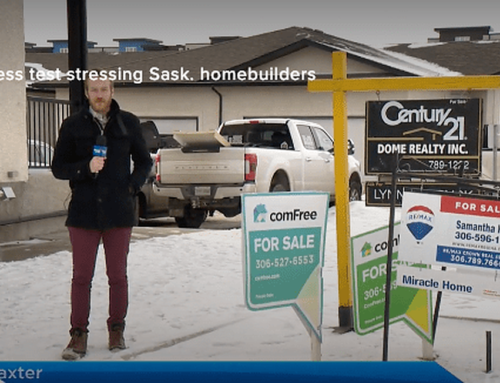by Regina Lawyer Marc Kelly
This post originally appeared on Marc Kelly’s Blog here. Marc Kelly is a Regina lawyer whose blog is an excellent resource for anyone purchasing property in Saskatchewan. I wanted to share this specific post on my blog as this is a question I get asked a lot, and Marc (being a lawyer) provides some great insight. So here we go…
As the market heats up going into the spring, I feel it is as good a time as ever to help people understand the cost to close their deals. I hate seeing people scramble because they failed to appreciate some aspect of their transaction. I wrote a waaaaaay more detailed article on this in the past , but some people just do not enjoy a blog post the size of small novel on closing costs. I just don’t get it. 🙂
So here we go – the top five cost centres in your home purchase:
1. Your Down Payment
The lawyers handle the majority of the cash. Some may be held by your Realtor’s brokerage for the deposit that will eventually pay their commissions, but the vast majority goes through our office. We get the money from your lender and the remaining down payment from you and send it over to the other law office that is assisting the vendor. Despite all those bad lawyer jokes out there, people trust us (and our insurance).
So don’t be surprised when we ask for $60,000 to close the deal. Most of that is going to your house.
However, if the number seems off, make sure to ask for more details. Sometimes mortgages are set up for the wrong amount, or they are set up as a line of credit, and you may not want us to use the whole amount. We will happily explain what our break down of the purchase price is, and where the money is coming from and going.
2. Legal Fees
I like you folks. Promise. Or at least most of you. (Probably not those who are mean to my staff when they are doing their best to help you out, but those are pretty rare.)
However, I can not do this stuff for free. My partners would have a pretty big problem with that. So I have a fixed fee that I charge for me and my staff assisting you with the transaction. It is to pay for my time in preparing and reviewing documents, meeting with you, handling the deal, and reporting to everyone. I’ll give you a quote if you want it, and a retainer letter detailing my fees when I get some instructions from you to start the file.
3. Disbursements
The legal fees are the service related costs for the deal. However, there are a number of costs that my office incurs to close the deal on your behalf. I pass those fees along to you. However, I will do my very best to estimate these in advance for you if you request a quote.
These can include a number of things, like:
- searches in land databases that cost money
- registration fees to put a mortgage on title
- title insurance
- courier charges
The most significant charge is the cost to transfer the property in your name. In most cases, it will cost $300 for every $100,000 of value on the title. So a $300,000 will cost $900 in transfer fees alone. Often, if you are calling asking for quotes, firms will ask for a value in order to reasonably estimate this cost. Some will do so as the legal fees will vary based on the value of the property.
4. Adjustments
The adjustments can be the most difficult part of the transaction to understand. We see articling students that struggle in understanding these things, and so I am not surprised when the average joe takes some time to wrap their heads around these numbers.
In essence, as purchaser, you are paying the vendor for amounts that the vendor has prepaid which will benefit you as future owner, OR you are receiving a credit for amounts incurred during the Vendor’s time of ownership that they have not paid for yet. The most common ones are condo fees, property taxes and water heater rentals.
Let’s imagine your property has a property tax bill of $3,600. The amount of money my office requires will vary dramatically depending on if taxes have been paid or not on the property. I’m going to simplify this by pretending all months are equal, so that the monthly property tax amount is $300. (Note – we normally adjust based on the number of days, not by months).
If it is the end of April, and the owner decided to pay all taxes in full, you would need to bring in an extra $2,400 to pay the owner back for the taxes paid from May onward. If the taxes were not paid, you would get a $1,200 credit, but would be responsible for property taxes for the year. If they are on TIPPS (the monthly tax instalment plan from the city) the adjustment may be minimal, but then you would be responsible for the remaining 8 months of taxes owing.Clear. As. Mud. Again, ask as many questions as you need to make this clear. My staff and I have dealt with it all before.
5. Lender Fees/Adjustments
At times, the lender will deduct amounts right off of the mortgage amount that is being lent to you. These include things like title insurance, appraisals, and service fees for wiring cash to our office. Each lender is a little bit different on the fees they charge. They may also holdback a portion of the cash for other costs, like an interest adjustment deduction.
This is where they hold back an amount representing the interest to be charged between the date that we receive the money, and their ‘interest adjustment date’. They may also hold back an amount to cover the funds necessary to adequately fund tax account if they are paying property taxes on your behalf.We find out about this stuff when we get your mortgage instructions, which can be fairly late in the transaction. Make sure to ask your mortgage broker or specialist about whether any of these things will apply to you.
Bonus – What Cost Do I Not Have to Budget For At Closing?
CMHC fees (or lender insurance fees) – While these amounts are paid by you over time, they simply get added to the amount of the loan. There is no need to come up with the cash for this when closing a purchase. However, they do get paid as part of your regular mortgage payments.








